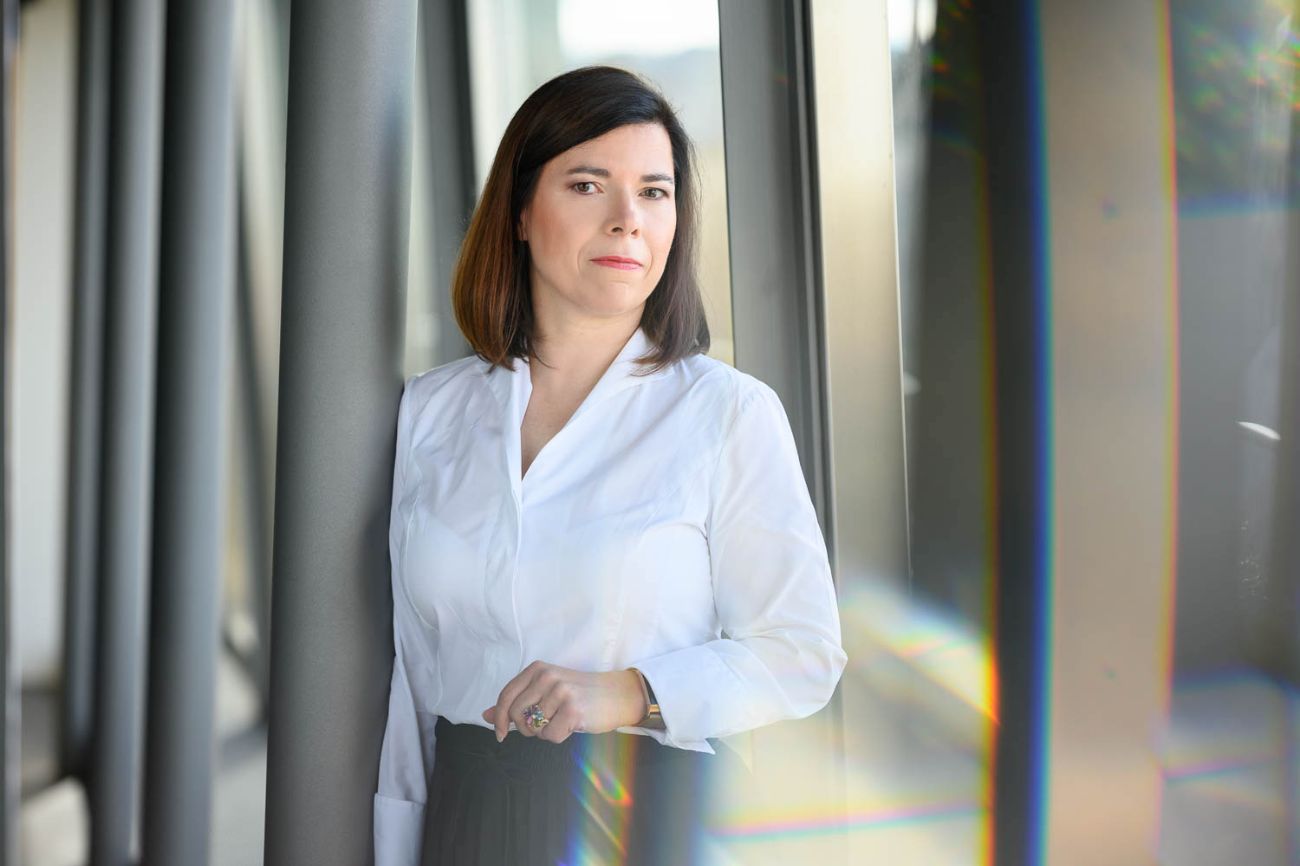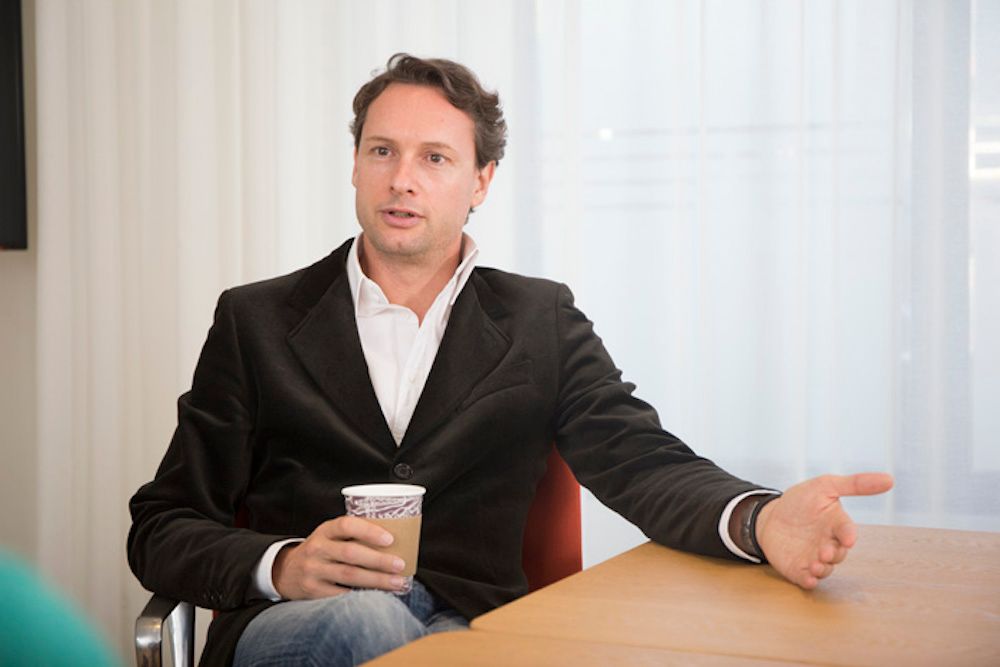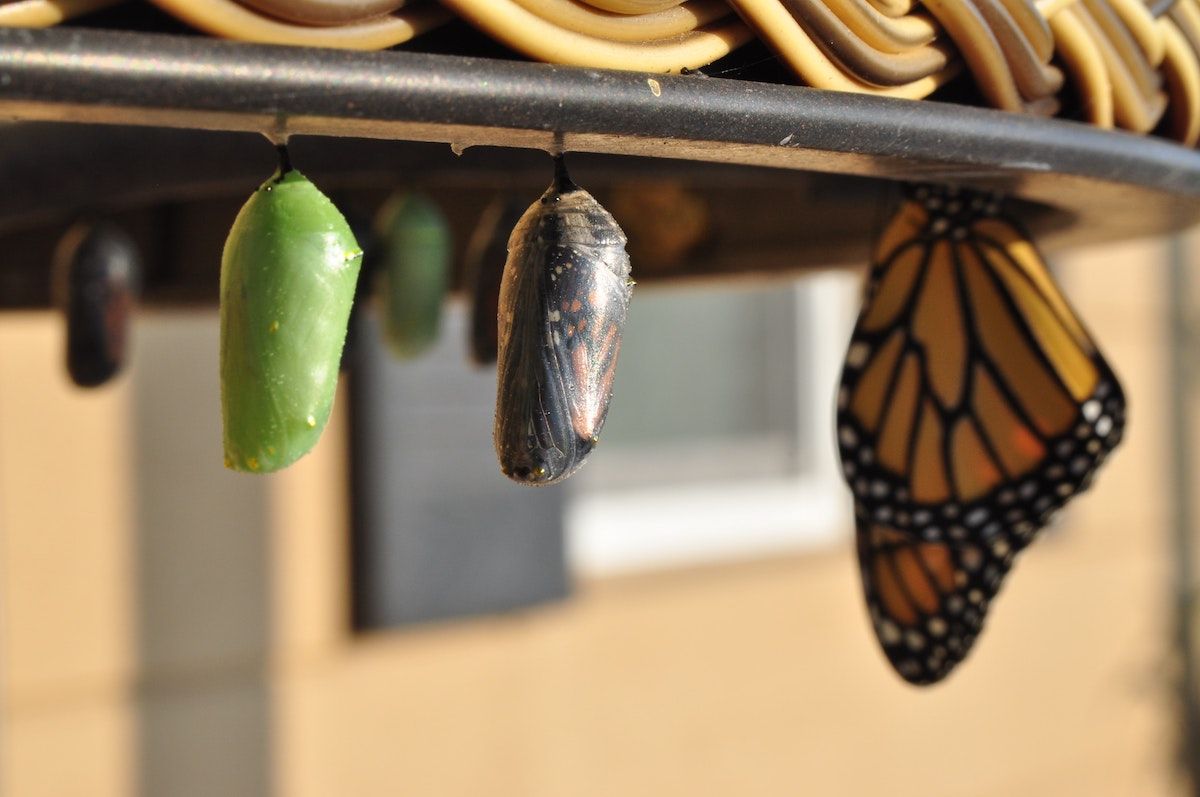„We need to start the transformation with ourselves“

A necessary shift to self-organization?
Otti, in March you partly deconstructed Laloux's prescription for a teal organization in a presentation at the "Teal around the world" conference. Together with Antoinette, you are developing a "Teal 2.0" framework . First of all, what is new about your Teal critique?
Otti Vogt: In the past, there have been very few constructive discussions about Laloux’s theory of reinventing organizations. His evolutionary ideas are based on Spiral Dynamics by Beck and Cowan and Ken Wilber’s later adaptations – Wilber has written the foreword in Laloux’s book. Indeed, in the US Laloux is not as well-known as in Europe and one mostly refers to Spiral Dynamics. In a nutshell, the basic idea is that the consciousness of mankind progressively develops and consequentially the way we organize changes. According to Laloux, today we have reached a “teal level of consciousness”, which implies a necessary shift towards wholeness and self-organization.

Most critics reject the concept tout court, because the suggested psycho-historical theory of human evolution is not evidence-based and followers often become ideological. Others simply discard Laloux as an ex-McKinsey consultant “who has become spiritual”. In fact, academic researchers and large organizations have almost completely ignored the whole theory. As a result, few have tried to investigate the suggested linkage between spirituality and a more ethical worldview, and practical implications for organizational development. This has limited a constructive dialogue to further develop the thinking.
I do believe that suggested new practices must be based on more than a subjective retrospective of selected use cases.
Antoinette, why has academia largely ignored Laloux's and Wilber's ideas?
Antoinette Weibel: From an evidence-based perspective Ken Wilber with his "Theory of Everything" is a challenge. The problem is that his oeuvre defies rigorous empirical validation as it is broad – a combination of philosophy, psychology and management with all disciplines requiring discrete ways of qualification. If I look at psychology, a main basis of his work, then I have not found many studies clearly proving his thoughts in a comprehensible, and peer-reviewed fashion. This means I can neither rely on an in-depth and critical debate about Wilber by my colleagues from developmental psychology, nor can I see evidence about how well his tenets were examined with more traditional methods for myself.
A lack of evidence
With Laloux my problem is that he neither takes the rich academic and empirical knowledge of different organizational models into account – developed long before him, nor does he explain what his “ideal type” is. Is teal simply “where we all have to end” – implied in the evolutionary logic – or is it a “thought experiment”? This is how Max Weber views ideal types – a metering device – to understand more about our current reality and to tease out possible alternatives. So as an organization and HR researcher my main question is: where is your data and on whose giants’ shoulders do you stand? And what is a best possible target model, based on which assumptions, outcomes and contexts? Getting clarity here would much support the debate.
So, you see Laloux's biggest shortcoming in not having selected the right elements for his teal ideal?
Otti Vogt: When it comes to Laloux’s specific suggestions, my concerns are actually threefold: firstly, rather than just claiming that increased spirituality will necessarily trigger the right changes I believe we need to be specific about the values we want organizations to endorse. The ethical values of teal are somewhat untransparent and Laloux does not really operationalize a clear value system through his recommendations – rather, we are asked to endorse the allegedly superior teal level of consciousness and bring our whole self to work, self-organise, and hope for evolutionary purpose. This is suspiciously akin to a religion promising latter-day paradise if only we follow the right practices. We have multiple theories of value and morality and I believe we must start from an agreement of what “good” is and what the purpose of business is, rather than just hope for enlightenment. And we need clear success measures.

Secondly, I do believe that suggested new practices must be based on more than a subjective retrospective of selected use cases. Whilst I believe many of Laloux’s recommendations are valid, I am convinced we can go beyond what he saw in 2014 and leverage decades of organizational research and practice to increase the coherence of the model. Using academics like Fiske and Triandis, we also try to show that relational models link with value systems and are mutually exclusive – rather than simply integrate, as Wilber or Laloux propose.
And, finally, I believe the evolutionary theory is flawed. I don’t believe we can assume that human consciousness automatically increases – many "ancient" cultures were undoubtedly highly sophisticated – or that such evolution necessarily leads to better choices. I simply do not see large organizations rushing to embrace a teal mindset. Yet, that is a problem. At its core teal is about building healthier businesses and today, we need companies more than ever to become responsible actors to serve society and humanity. Hence, we indeed need a societal dialogue about how to build “good organizations”. Ultimately, ethics is about making the right choices to create the future we want.
Different relational paradigms
You mentioned Fiske and Triandis. According to them, there are only four basic relational models. Laloux described five colours for five different types of organizations ... .
Antoinette Weibel: The anthropologist Alan Fiske distinguished four distinct relational models, which we use to understand, coordinate and also morally evaluate societal interactions. These are the more collectively oriented “communal sharing” and “authority ranking” and the more individualistic “equality matching” or “market pricing” ones.
Numerous studies have shown that universally found relational patterns strongly relate to our values.
If you look at Buurtzorg, for example, they operate self-managing teams without managers, embedded in a strong culture of collective norms, without hierarchy and with a common purpose. This is a “communal sharing” model. In contrast, Haier, the highly successful Chinese white good manufacturer, leverages a network of over 4000 fully autonomous and competitive micro-enterprises to continuously improve its offerings and customer experience. This is a market-based model. Finally, Viisi, the Dutch mortgage provider, leverages “sociocratic” structures and transparency to move towards an equality-oriented organization.
Although all three promote self-organization and are considered modern corporate cultures, they operate through different relational paradigms. And this distinction is important as numerous studies have shown that these universally found relational patterns strongly relate to our values. They influence the way we feel, what we see as just and appropriate and of course the way we treat each other. Therefore, having so many colours in Laloux’s model might distract from a fundamental distinction and discussion about the values we believe in and the implications for how we organise.
How to frame a more ethical worldview
Otti Vogt: Indeed, the question is not so much how many colours there are, but how to frame a more ethical worldview that is conducive to address today’s challenges - and how to help organizations to operationalise it, acting responsibly within the wider ecosystem. Clearly, there are choices to be made. Alan Fiske describes this nicely using the example of a fire department. We could imagine a society where a fire department serves only people who pay individually for fire insurance – quality and prices are set by demand and supply and who doesn’t pay gets no service. That's a market-based paradigm. Or volunteer firemen could self-organise and make every household in a community contribute a small amount to cover everybody – i.e., communal sharing. Or the state could set up the service, paid through taxes, and select a leader who centrally manages professional firemen - a classic hierarchy or authority ranking according to Fiske. In all cases, we have a fire department, but each with a completely different ethic behind it.

Is Laloux really describing an ethical model with the teal organization? At least with Spiral Dynamics and Ken Wilber, it's mainly about levels of consciousness?
Otti Vogt: Culture is always a derivative of underlying assumptions, beliefs and values – our wider world view. Structures and processes in turn are strongly influenced by our culture and the way we communicate and interrelate, and vice versa. In that sense, a teal organization is predicated upon an evolution towards a more conscious, holistic and integrative way of thinking. And that certainly implies an ethical position. However, our view is again that there is no automatic “spiralling” upwards of morality - in reality, we must make conscious choices. In order to do so, we must understand the alternatives.
I simply do not see large organizations rushing to embrace a teal mindset.
Simplifying, in our Western society we continuously face multiple “colours”: most prominently, we find free-market capitalism – orange, a social welfare capitalism – green, and a conservative neoliberal capitalism – amber. We must examine these worldviews and understand how they are reflected in the way we think about, develop and run our organizations. In spite of the rhetoric, managers are always political. If a company makes huge profits, but lays off 15 percent of its people to further maximise return on capital, of course there is a “political” ideology behind it. The same is true in terms of how we organise.
Antoinette Weibel: If we follow certain ideologies but no longer perceive the moral concepts behind them, that is a declaration of bankruptcy. Every ideology implies beliefs about what we care about and how we treat each other. If we simply take these along without questioning them, we may unwittingly cement a worldview that is not conducive to a sustainable society.
Hybrid forms and different contexts
It is obvious that traditional hierarchies are conservative and struggle to cope with today’s fast-changing environment. But in organizations, we often experience hybrid forms and in different contexts, people might need to act differently....
Antoinette Weibel: Correct, and there are never simple answers. We will have to learn to live with the fact that organizations are primarily means to handle paradoxes. For instance, handling the learning-unlearning or the trust-control paradox is an everyday challenge in organization. But there are different ways to go about this and we need to be conscious in dealing with “hybrids”. Let’s make it concrete. For instance, trust is a prerequisite in modern organization as it allows us to handle complexity – we can only decentralize if we trust our employees. At the same time, it would be naïve to believe that trust is always warranted. If were, there would be no risk and we would not need to trust. Therefore, we still would require a degree of control. In fact, you could even argue that trust evolves because there are some controls or norms.
We will have to learn to live with the fact that organizations are primarily means to handle paradoxes. For instance, handling the learning-unlearning or the trust-control paradox is an everyday challenge in organization.
The big question is how to navigate these opposing forces in a way that reflects our core values and the specific context we face. This inquiry is also central when we compare “learning from the past” and “presencing the future”. We need to understand what is “good” and how to organise today to create the future we desire. And to do this we need to be more specific than Laloux’s initial suggestion.
Otti Vogt: Talking about values and beliefs, there is a notion that a dominant paradigm always incorporates all others. We might find some “islands” of agility or “new work” methods within a traditional organization, but often when times get tough or decisions get challenged, the dominant market logic or hierarchical structure shows its face. We usually only see true transformation when the organization as a whole and its leadership endorses a different paradigm. And this is rare. Most companies use methods like agile without ever addressing the prevailing power structures or mindsets.
You suggest that leaders should rediscover virtues in order to craft better organizations. What kind of virtues would suit a future organization in your view?
Otti Vogt: True. As an alternative to postmodern utilitarian ethics, and to a purely spiritual concept like teal, we have started to explore business ethics in depth and especially a classical ethical theory called “virtue ethics”. Aristotle, who was its main proponent, argued compellingly that our highest purpose is to lead a “good life”. Rather than accumulating money or trading selfishly without contributing to the common good, we should seek collective happiness and flourishing, to achieve our highest potential as humans. Aristotle suggested that we could do so by living virtuously.
When we act virtuously, we do not primarily calculate the consequences of our actions – what’s in it for me – or follow rigid rules, but we seek to act proactively and habitually in a way that enables positive flourishing for all.
Antoinette Weibel: When we act virtuously, we do not primarily calculate the consequences of our actions – what’s in it for me – or follow rigid rules, but we seek to act proactively and habitually in a way that enables positive flourishing for all. Hence, the virtues we are looking for are those that support individual vitality, collective learning and systemic regeneration, across the ecosystem. We are developing the concept of “organizational aliveness” to evaluate the impact of specific management practices. Ultimately, virtuous organizations require individuals to develop personal agency and commit to take personal and mutual accountability for the whole.

What about the "invisible hand"?
Many companies today are committed to a purpose, but ultimately, it's about being successful in the current economic system, which means maximizing profit. In your opinion, wouldn't we have to change the entire economic system in order to be able to follow new goals?
Otti Vogt: Firstly, I would suggest that the idea that our economic system exists in splendid isolation from society is fundamentally flawed. Companies exist only by public fiat and economic activity is just one expression of human life. Our economy must always serve humanity. Moreover, the belief that free markets automatically lead to a prosperous society is a popular misinterpretation of Adam Smith's invisible hand. Smith lived in the 18th century when few people could entertain commercial activity and more economic freedom was utterly desirable. However, his concept of markets would have been envisaged within a social and institutional framework to safeguard collective moral norms. Today we can clearly see the consequences of a hubristic individualistic pursuit of growth and wealth and the lack of shared values. As Joseph Stiglitz, the Nobel laureate, once said, "the reason that the invisible hand often seems invisible is that it is often not there."
I do believe we must actively rebalance our society, for the sake of our and future generations. Most importantly, we need to redefine success.
Hence, I do believe we must actively rebalance our society, for the sake of our and future generations. Most importantly, we need to redefine success. If we only seek to limit the excesses of capitalism with ESGs, CSR, stakeholder capitalism and the likes, we are not addressing the root cause of the problem. Purpose is not about glorified mission statements, but about being intentionally interdependent to attain a good society for all. That's why we're trying to bring more reflection into our business practice, developing what Aristotle called “phronesis”, or practical wisdom.
Antoinette Weibel: What we now call for is a return to moral identity and responsibility. We must ask ourselves "is this good"? And how can I contribute, as a leader or simply as a member of the organization community, to the shared good of the business? In Europe we actually suggested the model of an "honourable merchant" a long time ago. An honourable business (wo)man bases their conduct on virtues which aim at holistic long-term success for their company, for society and for the environment. But we forgot about that. For the last 30 years we rather spun the tale of the amoral, self-interested and cunning “homo economicus” who needed to be controlled through rules, incentives and sanctions. In management, we still today often insist on the narrative of a "libertarian ideology" – we also see this in education, for example in business schools. We still preach about free markets. We need to revise our script. Philosophy was never meant just to interpret the world, but to change it.
We must ask ourselves "is this good"? And how can I contribute, as a leader or simply as a member of the organization community, to the shared good of the business?
An "honourable merchant" takes comprehensive responsibility for their business. But current ownership structures and profit focus are more likely to serve only shareholders. Do we need new ownership structures?
Otti Vogt: Yes, ownership structures and shareholder activism can become major stumbling blocks for sustainable transformation. Recent examples confirm this again. We certainly must re-examine ownership structures and the institutional framework businesses operate within. But for me, current structures are also a result of the system we have created, not its sole cause. We need to start as well with ourselves and rethink what it means to be a “good” citizen in a civic economy. We need mature individuals who want to contribute to something bigger, to the harmonious interaction between people and their environment. As citizen, as consumers, as employees. Ultimately, as Clive Lewis once said: “nothing but the courage and unselfishness of individuals is ever going to make any system work properly… You cannot make man good by law, and without good men you cannot have a good society”.
Antoinette Weibel: There are, of course, many approaches to ownership such as cooperatives, steward ownership, the Economy for the Common Good (ECG), B Corps or, simply, employee shares. Margaret Blair brought up the principle of mediated hierarchy. She proposes a corporate governance solution in which strategic management sees itself as a mediator between different interest groups. She developed this concept back in the 1990s. It begs the question: why don't we just try it?
Otti, in your article for New Management you write that you can't arrive at a management board with the argument that something isn't "teal" enough. Is it easier to talk to managers about virtues?
Otti Vogt: To be honest, we haven't reached the point of talking to organizations about specific virtues. There could be virtues like fairness, trust, courage, global caring and loving kindness – but we need to have more conversations about that. We must ensure that the concept of a virtuous organization gets operationalised in an evidence-based, effective and actionable way, in order for leaders to embrace it. That will be part of the research for our book. Right now, we have focused on how to assess and understand what influences organizational aliveness. We have developed an initial "heat map" to compare the impact of different management practices on collective flourishing.
Ensure that the concept of a virtuous organization gets operationalised
Antoinette Weibel: Last year, I went around like crazy telling everyone that love is an important virtue in companies. I was amazed at how interested managers were. Surprisingly, many even said that we should talk more about what it means for leadership practice. But of course, it's one thing to talk to managers, and it's another to enable them to institutionalize and live this view.
Given the idiosyncrasy of organizations and people, models are always wrong. They carry the risk of being overtaken by a changing environment or to lead to dogmatism. How do you want to prevent this with a new ideal type?
Antoinette Weibel: Models are indeed always wrong, because they only provide single answers. What we are looking for is a framework that guides people to ask the right questions and allows them to explore a topic from different perspectives. Whilst virtues undoubtedly have a normative component, they however allow for contextual decision-making based on circumstances.

Otti Vogt: Indeed, I am not certain we will develop a specific “ideal type”. That said, we want to ensure sufficient focus on the ethical foundations for organizational transformation, in order to ensure we are not just “putting lipstick on a pig”. Here, I believe Laloux’s book, which I highly recommend to everyone, paves the path for a deep inquiry about how to link ethics and specific management practices. Building on it, leveraging a robust and accepted ethical theory, we will investigate alternative practices for organizational development, like agile, holacracy, sociocracy or Haier’s Rendehnhayi, to make coherent recommendations.
What we are looking for is a framework that guides people to ask the right questions and allows them to explore a topic from different perspectives.
Otti, how has your analysis of Laloux and your new proposal to look at organizations been received at the "Teal around the world" conference? After all, Laloux's worldwide followers gather there.
Otti Vogt: The reaction was initially sceptical. Some suggested I was lucky it was a virtual event - but of course tongue in cheek! But when it became clear that my intention was not to criticise, but to find a way to accelerate sustainable change, I got many positive reactions. Many listeners appreciated that someone actually came with arguments and new insights, not with a superficial rejection of the model. My standing as a practitioner is also different from consultants or academics, as people know I am talking with personal passion and from personal experience. And I was very grateful for many colleagues who reached out after the session to join the dialogue.
Where do you go from here with your approaches to the topic?
Antoinette Weibel: We have started to write a book and intend to conduct several new case studies. We are in talks with many management thinkers to bring together ideas from many different sides.
Otti Vogt: Indeed! Plus, as long as we don’t start a transformation with ourselves, it seldom is successful. Hence, I decided to leave ING at the end of the first quarter to dedicate 2021 to the consolidation of my personal lessons learned and to develop further insights together with other practitioners and thought leaders. Hopefully, Antoinette and I can make a small contribution to craft businesses that are more alive and more suitable to address the challenges of the 21st century, together with many others.


